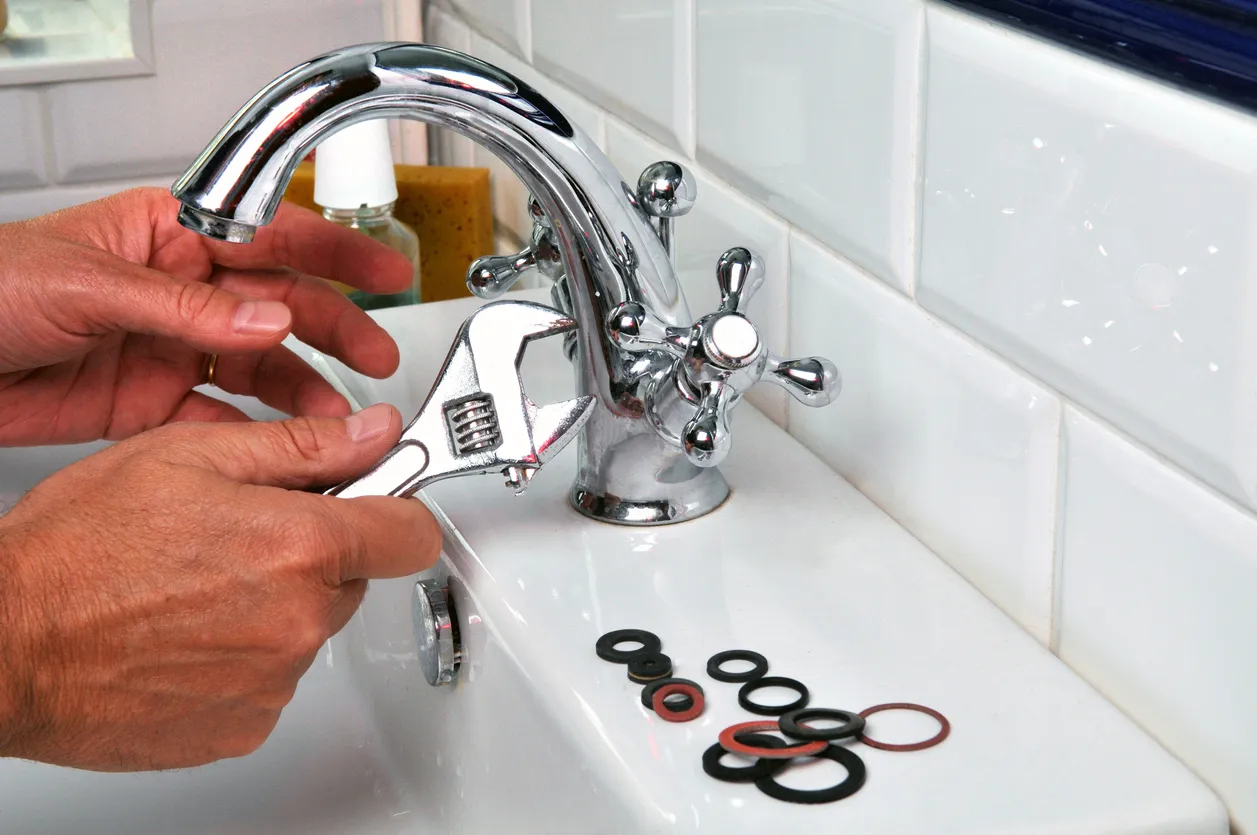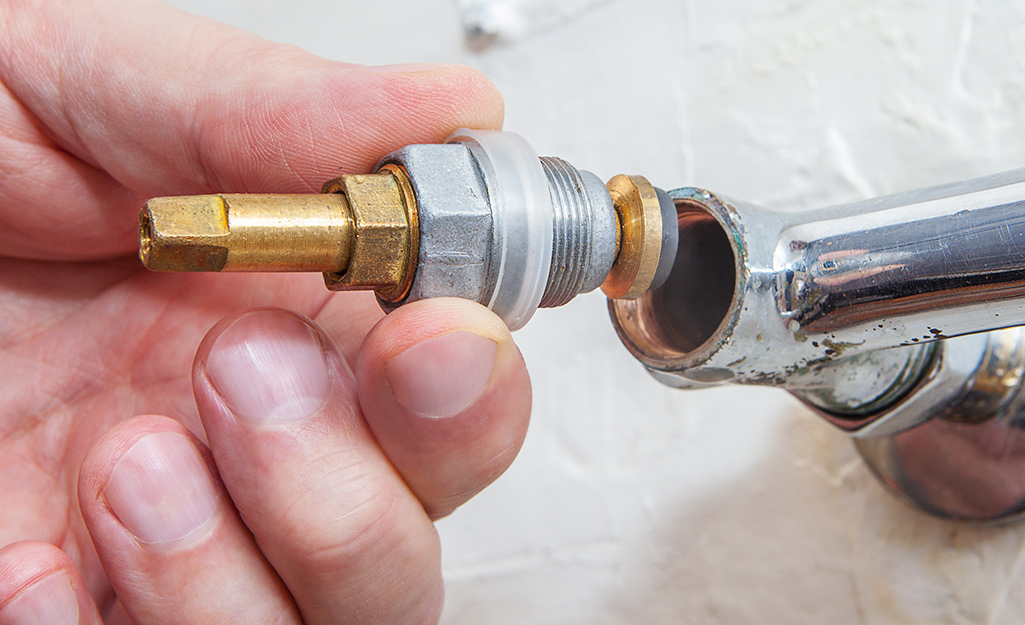Motives Why It's Crucial to Resolve a Malfunctioning Faucet
Motives Why It's Crucial to Resolve a Malfunctioning Faucet
Blog Article
Here underneath yow will discover more professional facts involving What Causes Leaky Faucets & How To Fix Them.

Dripping faucets could seem like a minor aggravation, but their impact exceeds simply the annoyance of the noise. From drainage to sustaining unneeded financial costs and health and wellness dangers, neglecting a trickling tap can bring about numerous effects. In this article, we'll explore why it's important to address this typical home issue promptly and effectively.
Wastage of Water
Ecological Influence
Dripping taps contribute significantly to water wastefulness. According to the Epa (EPA), a single tap trickling at one drip per secondly can lose more than 3,000 gallons of water each year. This not only strains water sources however also influences ecological communities and wildlife depending on them.
Step-by-Step Guide to Fixing a Dripping Faucet
Devices Needed
Prior to attempting to take care of a dripping tap, collect the necessary devices, consisting of an adjustable wrench, screwdrivers, substitute components (such as washers or cartridges), and plumber's tape.
Typical Tap Issues and Their Solutions
Recognize the type of faucet and the certain concern causing the drip. Common issues include worn-out washers, corroded valve seats, or malfunctioning O-rings. Describe supplier guidelines or online tutorials for detailed guidance on repairs.
Financial Costs
Increased Water Bills
Past the ecological impact, dripping taps can blow up water costs significantly. The collected waste over time translates right into higher utility expenditures, which might have been prevented with timely fixings.
Prospective Residential Property Damage
In addition, extended trickling can cause damage to fixtures and surface areas surrounding the tap. Water accumulation can trigger staining, rust, and also structural concerns if left unattended, leading to additional repair work prices.
Health Issues
Mold And Mildew and Mold Growth
The continuous visibility of dampness from a dripping faucet produces a perfect atmosphere for mold and mildew and mold development. These fungis not just compromise indoor air quality however likewise position health and wellness dangers, particularly for individuals with respiratory system conditions or allergic reactions.
Waterborne Conditions
Stagnant water in leaking faucets can come to be a breeding place for germs and various other pathogens, raising the risk of waterborne illness. Impurities such as Legionella microorganisms prosper in stagnant water, potentially leading to significant health problems when ingested or breathed in.
DIY vs. Professional Fixing
Benefits and drawbacks of DIY Repair
While some might attempt to take care of a dripping tap themselves, DIY repair services come with their own collection of challenges. Without correct knowledge and tools, do it yourself attempts can intensify the concern or lead to incomplete fixings, prolonging the problem.
Benefits of Employing a Specialist Plumber
Hiring a professional plumber makes sure that the underlying source of the trickling tap is addressed efficiently. Plumbing technicians have the knowledge and devices to diagnose and repair faucet concerns successfully, conserving time and decreasing the danger of additional damage.
Environmental Duty
Specific Payment to Preservation
Taking obligation for repairing dripping taps lines up with broader efforts towards water preservation and environmental sustainability. Every person's activities collectively make a significant influence on protecting precious sources.
Sustainable Living Practices
By prioritizing prompt fixings and embracing water-saving habits, people contribute to lasting living practices that profit both present and future generations.
Safety nets
Regular Upkeep Tips
To prevent leaking taps, carry out regular maintenance such as cleaning up aerators, evaluating for leakages, and changing worn-out components promptly. Furthermore, take into consideration installing water-saving devices or updating to extra efficient fixtures.
Value of Prompt Services
Addressing dripping faucets as quickly as they're observed avoids further water wastefulness and prospective damages, eventually saving both water and cash in the long run.
Effect On Home Worth
Perception of Well-Maintained Property
Keeping a property in good condition, consisting of attending to maintenance concerns like leaking faucets, improves its perceived worth and desirability amongst potential purchasers or tenants.
Influence on Resale Worth
Qualities with well-maintained plumbing fixtures, consisting of faucets, command higher resale values in the realty market. Addressing leaking taps can add to a favorable impression during building inspections and settlements.
Final thought
Attending to a trickling tap surpasses plain convenience; it's an important action toward saving water, minimizing monetary expenses, and protecting health and home. Whether through DIY repairs or specialist help, acting to repair dripping taps is a little yet impactful way to promote liable stewardship of sources and contribute to a much healthier, a lot more sustainable future.
How to Fix a Leaky Faucet: Step-by-Step Repair Guide
A leaky faucet may seem like a simple annoyance, but if it's not fixed promptly, that leak could cost hundreds to potentially thousands. From water damage to mold, mildew, and high water bills, even a tiny leak can be catastrophic if left unattended. Damage like this can even affect the overall value of your home, so it's important to take the right approach for leaky faucet repair. You may need the help of a plumber in some cases, but we've got a few tips you can try on how to fix a leaky faucet before calling the pros.
Four Faucet Types
When you're learning how to fix a leaky faucet, the first step is knowing what kind of faucet you're working with! There are four common types.
Cartridge Faucets
Cartridge faucets come in one- or two-handled varieties. In one-handled cartridge faucets, hot and cold water combines in a single cartridge. In the two-handled versions, hot and cold water are controlled separately and mixed in the faucet.
Ball Faucets
Ball faucets have a single lever you push up and down to adjust the pressure and rotate to change the temperature. A slotted metal ball controls the amount of water allowed into the spout.
Compression Washer Faucets
They're the oldest type of faucet, but they're still used in many homes — especially older ones. Compression faucets have two separate handles that, when turned, raise or lower the washer that seals a water valve. This valve stops water from flowing through the faucet when it is turned off.
Disc Faucets
Disc faucets rarely need to be repaired due to their maintenance-free design. The water flow is controlled by two discs — the upper one raises and lowers against a fixed lower disc, creating a watertight seal. If your disc faucet starts leaking, you may need to replace the seals or clean residue buildup from the inlets.
Fixing a Leaky Faucet
Step 1: Turn Off the Water
Whether you're learning how to fix a leaky bathtub faucet or how to fix a leaky kitchen faucet, always turn off the water supply to your working area when you're fixing a leak. The last thing you want is a flood added to your list of things to fix.
Look for the shutoff valves below your sink or around the tub and turn them clockwise to stop the water flow. If your faucet doesn't have shutoff valves, you may need to turn off the water for the whole house. Check to make sure it's off by turning the faucet on. If nothing comes out, you're ready to start the repair.
Step 2: Take Apart the Faucet
How you disassemble your faucet depends on the type of fixture you have. You can use a flathead screwdriver to remove the caps on top of the handle or handles for cartridge and compression faucets. Inside, you should see handle screws. Unscrew these with a screwdriver to remove the handle.
Disc- and ball-style faucets will typically have an inlet screw near the handle, and removing that will reveal the interior of the faucet.
Detach the Valve Stem
For cartridge- and compression-style faucets, you'll see the inner valve stem or cartridge once you remove the faucet handles. If you have a compression faucet, unscrew the brass valve stem. If you have a cartridge faucet, pull out the cartridge. If your cartridge has been in place for a while, it may require some tools or extra force to remove it due to mineral deposits.
Examine and Replace Parts
Once you've removed the parts, check them out to confirm what needs to be replaced. You may see corroded rubber washers, O-rings, stems, or cartridges. On a ball-style faucet, check the seats and springs for damage.
If you need to repair a leaky disc faucet, check the inlet and seals on the lower disc.
Once you determine what parts must be replaced, visit your local hardware store. Bring the damaged parts with you to ensure you can purchase the correct components to replace them.
Clean Valves and Faucet Cavity
If you've removed a stem or cartridge, you may notice mineral buildup in the faucet's threads. Use white vinegar to clean the valve seat by soaking it for a few minutes, then scrub it away with a soft toothbrush and rinse with warm water. You can also clean the interior of the faucet in the same way.
Reassemble the Faucet
Once your faucet is cleaned and the required parts have been replaced, it's time to reassemble it. Put the pieces back together and slowly turn the water supply back on. Doing this slowly is crucial because too much initial water pressure can damage the new hardware you've just installed.
https://homewarranty.firstam.com/blog/how-to-fix-leaky-faucet

I came across that post on Why It's Important to Fix Leaky Faucets while perusing the web. Kindly take the opportunity to promote this page if you liked it. Bless you for being here. Return soon.
Report this page